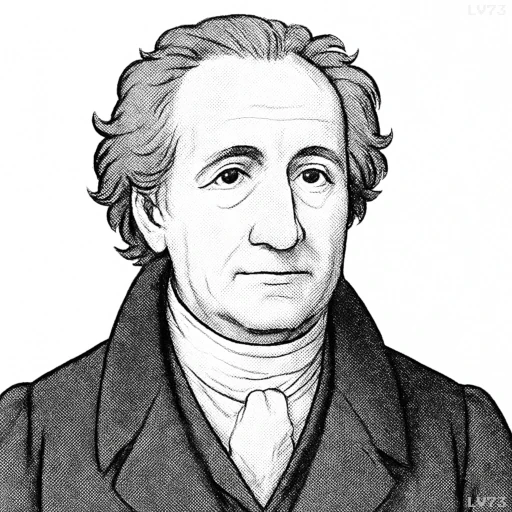“He who possesses art and science has religion; he who does not possess them, needs religion.”

- August 28, 1749 – March 22, 1832
- German
- Poet, playwright, novelist, philosopher, politician
table of contents
Quote
“He who possesses art and science has religion; he who does not possess them, needs religion.”
Explanation
Goethe suggests that art and science—the pursuit of creativity and knowledge—are both ways of engaging with the divine and understanding the world, and they can provide a sense of purpose and meaning that people often seek through religion. Those who are deeply involved in the study of art (expressing beauty, emotion, and creativity) and science (seeking truth, understanding, and the natural laws of the universe) have a built-in framework to make sense of life and their place in the world. For them, these pursuits can serve as a spiritual or fulfilling practice, almost like a form of religion itself, offering both understanding and connection to something greater.
On the other hand, those who do not engage with art or science may turn to religion as a way to find meaning, structure, and guidance in life. Religion, in this case, serves as a means of spiritual fulfillment, helping individuals make sense of their existence, find purpose, and address the deeper questions of life and the universe.
Historically, this idea reflects Goethe’s belief in the power of human creativity and intellectual pursuit as a form of spiritual engagement. During Goethe’s time, the Enlightenment and Romanticism both placed a high value on the human capacity for intellectual and creative exploration. Goethe himself believed that the pursuit of knowledge and the expression of beauty through art could elevate the human spirit in a way similar to traditional religious practices.
In modern contexts, this idea speaks to the growing intersection of spirituality, creativity, and intellectual pursuit. For many today, art and science can offer a sense of connection to something greater, whether through exploring the mysteries of the universe or creating meaningful expressions of human experience. For others, religion remains a central source of meaning and guidance. Both can offer a sense of purpose in life, depending on an individual’s perspective and interests.
Goethe’s words remind us that the search for meaning, whether through art, science, or religion, is an inherent part of the human experience. Each of these pursuits offers its own way of understanding and engaging with the world and the divine, and one is not necessarily superior to the other. Instead, they are different pathways to achieving the same goal: a deeper connection to life and to something larger than ourselves.
Would you like to share your impressions or related stories about this quote in the comments section?




